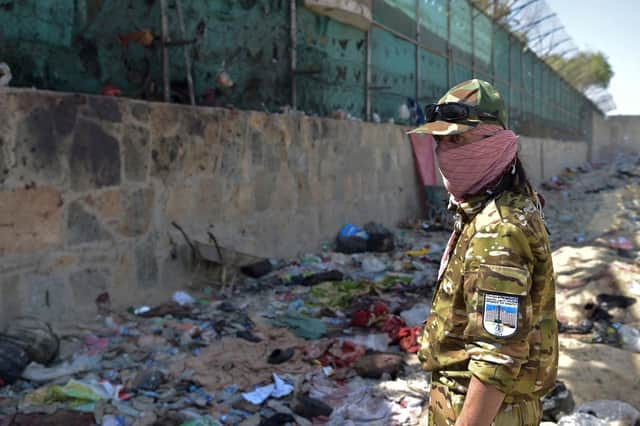Afghanistan: Who are IS-K and what was the motivation behind Kabul airport attack? - Dr Antonio Giustozzi


Despite its avowed jihadist profile, it concentrated the bulk of its energy over the years on fighting the Taliban. Until 2020, it did very little against the Afghan government of Ashraf Ghani, although it fought occasionally with the US armed forces.
Only in 2020 did it started carrying out targeted assassinations against government officials and security officers, but even at this time its main focus was fighting the Taliban. The reason for this focus is that IS-K has to establish a safe haven for itself in areas of Afghanistan that the Taliban have been controlling for some time, and the Taliban have not agreed to share space with this emerging competitor.
Advertisement
Hide AdAdvertisement
Hide AdIn addition IS-K has been mounting a terrorist campaign, primarily in Kabul, targeted at the country’s religious minorities: Shi’as first of all and Sikhs and Hindus next. The Shi’as have been repeatedly targeted in gruesome attacks, with the apparent intent of pushing them towards retaliation and kickstarting a sectarian civil war in Afghanistan, along the lines of what the Islamic State and its predecessors engineered in Iraq. Overall this campaign has not been successful so far.
The attack carried out on Kabul’s airport appears to be out of line with previous terrorist attacks by IS-K, in that it targeted at least in part the US. It is hard to say whether IS-K expected to be able to inflict such significant casualties on the US military or whether it just had a lucky strike. For IS-K, one benefit of killing American soldiers is to highlight its role as the one remaining real enemy of the US in Afghanistan, which might appeal to some donors to jihadist causes and attract some recruits.
The primary intent of the attack against the airport was however to inflict mass civilian casualties. This per se does not bring any benefit to IS-K, given that there is not even a sectarian dimension to this attack. The intent could have been to deepen tension among the Taliban over control and security in Kabul. The southern leadership of the Taliban was upset that Kabul was taken by the Haqqani network and other eastern Taliban and has been trying to reclaim it since. The attack highlighted the poor security arrangements in the capital and humiliated the Taliban, who pride themselves of being the ‘law and order’ party. The diatribe over who secures what and who is in charge is bound to deepen and IS-K could benefit from this, for example by attracting some disgruntled Haqqanis.
There is also an alternative explanation. In the past, there was evidence of cooperation between the Haqqani network and IS-K, with the former facilitating attacks by the latter in Kabul. Although there is no evidence of this for Thursday’s attack, many even within the ranks of the southern Taliban will be suspecting the Haqqanis of having facilitated the attack in order to warn the Taliban’s leadership of the consequences of not sharing power with the Haqqanis. Which of the two explanations apply depends on the state of intra-Taliban infighting over Kabul, which is not clear at the moment.
Dr. Antonio Giustozzi is senior research fellow at Royal United Services Institute and author of Taliban at War and of The Islamic State in Khorasan.
Comments
Want to join the conversation? Please or to comment on this article.